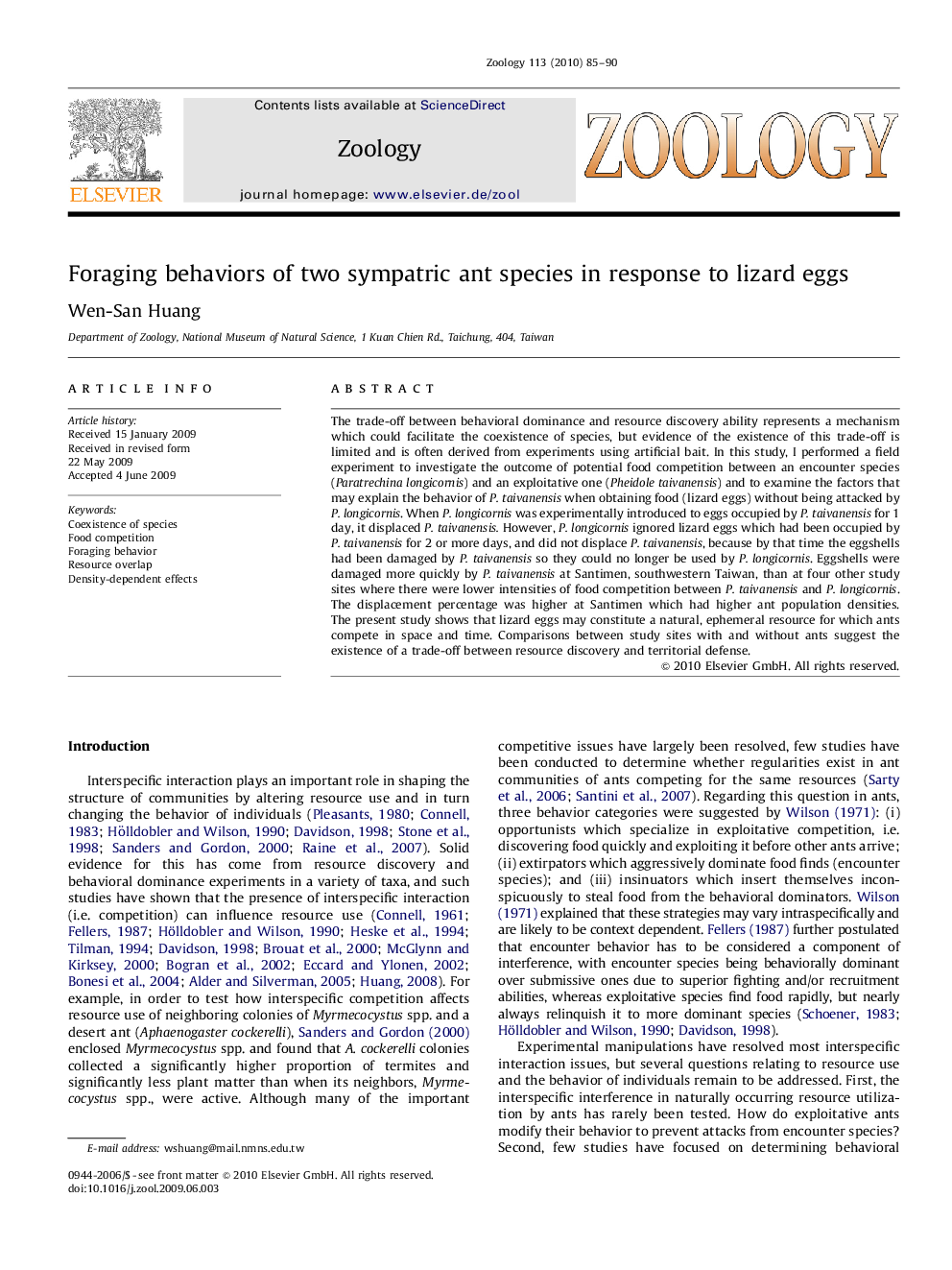| Article ID | Journal | Published Year | Pages | File Type |
|---|---|---|---|---|
| 2791199 | Zoology | 2010 | 6 Pages |
The trade-off between behavioral dominance and resource discovery ability represents a mechanism which could facilitate the coexistence of species, but evidence of the existence of this trade-off is limited and is often derived from experiments using artificial bait. In this study, I performed a field experiment to investigate the outcome of potential food competition between an encounter species (Paratrechina longicornis) and an exploitative one (Pheidole taivanensis) and to examine the factors that may explain the behavior of P. taivanensis when obtaining food (lizard eggs) without being attacked by P. longicornis. When P. longicornis was experimentally introduced to eggs occupied by P. taivanensis for 1 day, it displaced P. taivanensis. However, P. longicornis ignored lizard eggs which had been occupied by P. taivanensis for 2 or more days, and did not displace P. taivanensis, because by that time the eggshells had been damaged by P. taivanensis so they could no longer be used by P. longicornis. Eggshells were damaged more quickly by P. taivanensis at Santimen, southwestern Taiwan, than at four other study sites where there were lower intensities of food competition between P. taivanensis and P. longicornis. The displacement percentage was higher at Santimen which had higher ant population densities. The present study shows that lizard eggs may constitute a natural, ephemeral resource for which ants compete in space and time. Comparisons between study sites with and without ants suggest the existence of a trade-off between resource discovery and territorial defense.
